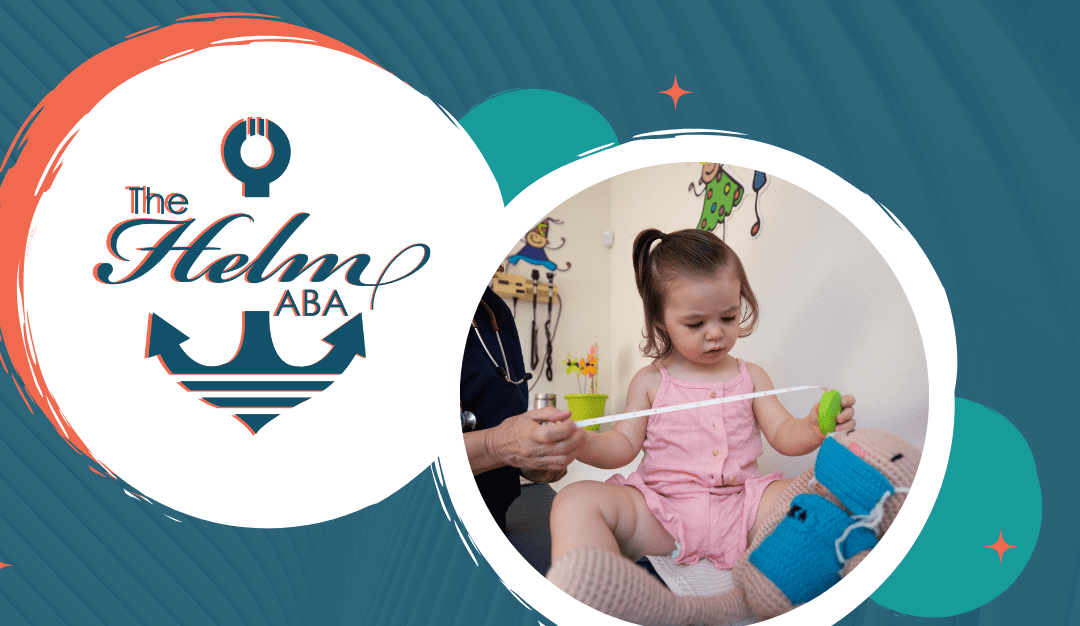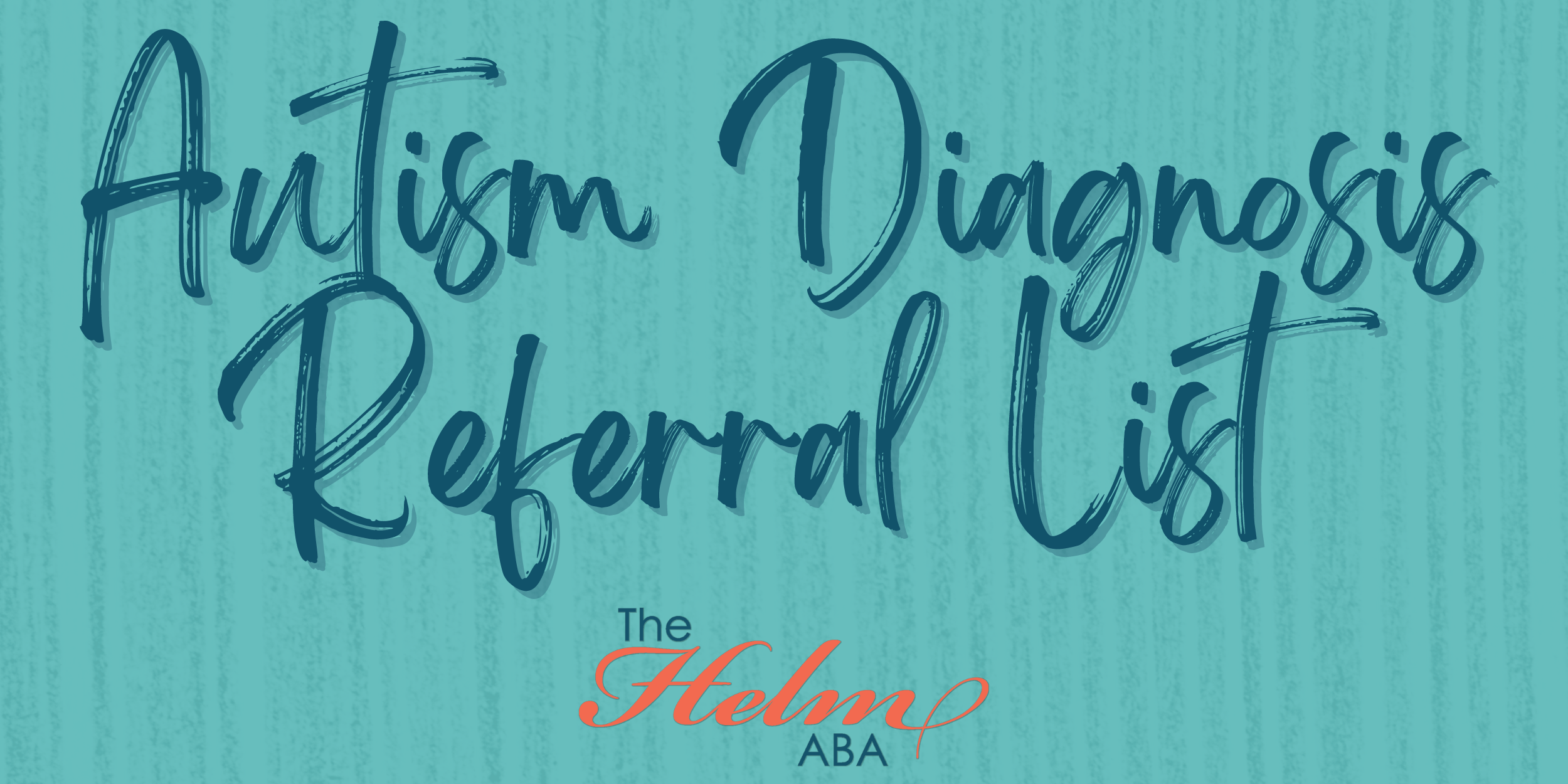The idea of reaching out to someone about an autism diagnosis can be very scary. Even if deep down it is clear that something isn’t quite right, putting a label on your child may feel intimidating or, even worse, like you did something wrong. Rest assured that isn’t the case. In fact, getting an autism diagnosis early is the best thing you can do because the earlier treatment starts, the more beneficial it is. Still, it can be an overwhelming process if you don’t know what lies ahead. So let’s answer some common questions about the process, questions like: Who can diagnose my child and where do I find someone? What are they looking for and what do they use to diagnose? And once I have a diagnosis, what are my next steps?
Who can diagnose my child?
There are many different professionals who can diagnose autism, but they must hold a PsychD or MD in order to be accepted by insurance for autism related therapies. At The Helm, we suggest that the provider be a neurologist, developmental pediatrician, doctorate level psychologist, or even your primary care physician (if they have appropriate training). It is important to remember that even if you have a diagnosis from your child’s school, that may not be enough to qualify for insurance to cover therapies.
Where do I find someone to do the diagnosis?
If you already have a relationship with a doctor that fits the criteria above, by all means see them. If, however, you are not confident that they have enough expertise to diagnose autism, The Helm recommends any one of the following doctors.
What are they looking for and what do they use to diagnose?
Diagnosing autism can be tricky because there is no one test that can prove it definitively. Autism is a diagnosis that occurs from an observation of many behaviors and can look different in everyone. Because of this, the doctor will be looking at a variety of factors to determine whether or not autism may be present. Typically, during an assessment they may not only observe your child, but they will ask you a variety of questions in order to better understand the situation. Some questions they may ask are:
- Did your baby smile by 6 months?
- Did they mimic sounds and facial expressions by 9 months?
- Are any of their behaviors unusual or repetitive?
- Do they interact with people and share experiences?
- Do they respond when someone tries to get their attention?
- Do they understand other people’s actions?
- Do they have any sensitivity to light, noise, or temperature?
Your answers to these questions will be vital in giving an accurate diagnosis. The most important thing here is honesty. There is no need to sugar coat. If you don’t remember if your child was smiling at 6 months, say so. Remember, they are looking for an accurate picture of the whole child.
The doctor will also use one or more of the following diagnostic tests. One or a combination of these typically work great, however some insurance companies require a specific test or set of tests. Please check with your insurance company prior to your doctor’s visit in order to ensure their requirements are met. The tests are:
- CARS – Childhood Autism Rating Scale
- GARS – Gilliam Autism Rating Scale
- ADOS – The Autism Diagnostic Observation Schedule
- VABS – Vineland Adaptive Behavior Scales
- ABAS – Adaptive Behavior Assessment System
What are my next steps?
If a diagnosis of autism is given, the next step would be to contact an ABA provider like The Helm. From there we will set up an initial consultation, observe your child, and work together to come up with a treatment plan. Autism Speaks has a wonderful, free resource called the 100 Day Kit for parents who have just received an autism diagnosis for their child.
In addition to finding an ABA provider, you may also want to look into Speech Therapy, Occupational Therapy, and possibly Physical Therapy. Think of this group of people as your team, everyone working together to move toward a common goal. At the beginning, this team should prioritize major areas of concern such as safety, communication, and toileting skills. It may feel daunting to assemble a team like this for your child, but we have broken down the process of interviewing providers for you here.
It bears repeating that the earlier ABA therapy begins, the more effective it is likely to be. If you would like more information on a free consultation, please click here or call 469-730-0925.


